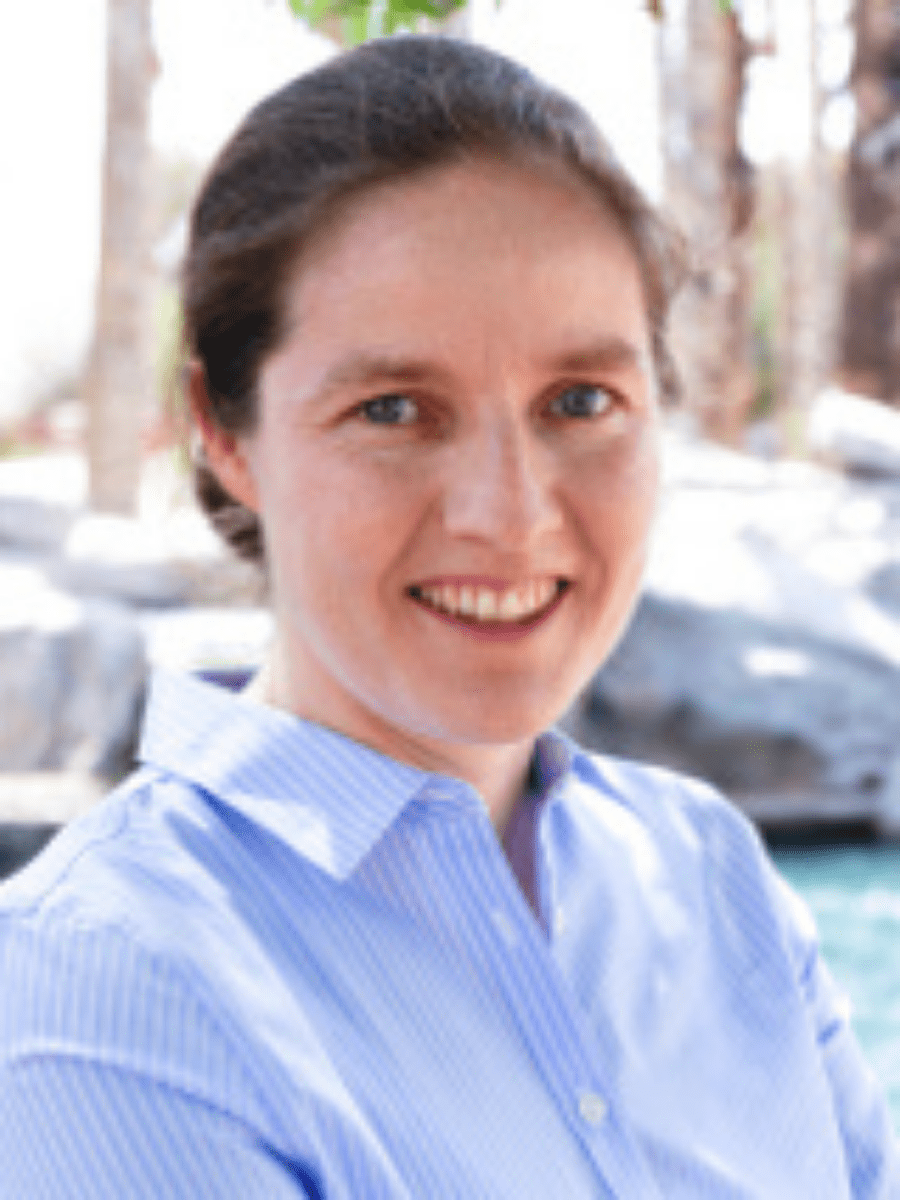Events

- This event has passed.
MICDE / Mechanical Engineering Seminar: Sophia Haussener, Associate Professor, Laboratory of Renewable Energy Science and Engineering, EPFL, Lausanne, Switzerland
September 29, 2020 @ 2:00 pm - 3:00 pm
Venue: Zoom Event

Bio: Sophia Haussener is an Associate Professor heading the Laboratory of Renewable Energy Science and Engineering at the Ecole Polytechnique Fédérale de Lausanne (EPFL). Her current research is focused on providing design guidelines for thermal, thermochemical, and photoelectrochemical energy conversion reactors through multi-physics modelling. Her research interests include: thermal sciences, fluid dynamics, charge transfer, electro-magnetism, and thermo/electro/photochemistry in complex multi-phase media on multiple scales. She received her MSc (2007) and PhD (2010) in Mechanical Engineering from ETH Zurich. Between 2011 and 2012, she was a postdoctoral researcher at the Joint Center of Artificial Photosynthesis (JCAP) and the Energy Environmental Technology Division of the Lawrence Berkeley National Laboratory (LBNL). She has published over 70 articles in peer-reviewed journals and conference proceedings, and 2 books. She has been awarded the ETH medal (2011), the Dimitris N. Chorafas Foundation award (2011), the ABB Forschungspreis (2012), the Prix Zonta (2015), the Global Change Award (2017), and the Viskanta Award (2019), and is a recipient of a Starting Grant of the Swiss National Science Foundation (2014). She is a deputy leader in the Swiss Competence Center for Energy Research (SCCER) on energy storage and acts as a Member of the Scientific Advisory Council of the Helmholtz Zentrum.
Modelling, experimentation and scaling of photo-electrochemical fuel processing devices
The development of a sustainable energy economy based on renewable, carbon-neutral energy is a necessary and urgent task. Photo-electrochemical approaches for solar fuels and materials are interesting, provided they can be efficiently, stably, scalably, and sustainably implemented. The functionality of such devices relies on complicated and coupled multi-physics processes, occurring at multiple temporal and spatial scales. Device modelling can actively and efficiently support the choice of the most promising – in terms of efficiency, cost, robustness, scalability, and practicability – conceptual design pathways, material choices, and operating approaches.
First, I focus on cost competitive photo-electrochemical (PEC) devices identified through quasi-transient techno-economic modelling [1]. I will describe the conceptual idea of thermal integration in the context of PEC [2], provide results of maximum theoretical efficiency calculations to quantify the benefits, and review the modelling framework that enabled the design of a feasible device [3]. I will illustrate how we have used our models to design and implement a PEC device with a solar-to-fuel efficiency of 17%, and discuss ongoing approaches to scale up by our lab in order to bridge the gap between research and practical applications.
Second, I will discuss detailed multi-dimensional mesoscale models that allow to assess the transport in complex (photo)electrodes. Specifically, we use direct pore-level simulations for the coupled transport characterization of mesostructured (photo)electrodes utilizing nano-tomography techniques to obtain the exact mesostructure that is utilized in direct numerical simulations [4]. I will extend these investigations to ordered structures for the assessment of the transport in mesostructured electrodes for the electorchemical reduction of CO2 and discuss the effect of the mass transport on selectivity and activity [5]. I will then present possibilities to simplify these involved multi-dimensional numerical models into rapid screening models based on semi-analytical correlations. I will discuss analysis results for a large range of semiconductor materials [6,7]. I will end with an outlook on research challenges and gaps in the field of (photo)electrochemical water and CO2 splitting.
This seminar is co-hosted by the Michigan Institute for Computational Discovery & Engineering, and the Mechanical Engineering department within the University of Michigan College of Engineering. Dr. Haussener will be hosted by Rohini Bala Chandran, Assistant Professor of Mechanical Engineering.
The MICDE Fall 2020 and Winter 2021 Seminar Series is open to the general public. University of Michigan faculty and students interested in computational and data sciences are encouraged to attend.
Questions? Email MICDE-events@umich.edu
References:
[1] M. Dumortier, S. Tembhurne, S. Haussener, Energy Environ. Sci. , 8:3614–3628, 2015
[2] S. Tembhurne, F. Nandjou, S. Haussener, Nature Energy, 10.1038/s41560-019-0373-7, 2019
[3] S. Tembhurne, S. Haussener, Journal of The Electrochemical Society , 163:H1008-H1018, 2016
[4] S. Suter, M. Catoni, Y. Gaudy, S. Pokrant, S. Haussener, Linking Morphology and Multi-Physical Transport in
Structured Photoelectrodes, Sustainable Energy & Fuels , doi: 10.1039/C8SE00215K, 2018.
[5] S. Suter, S. Haussener, Energy Environmental Science , doi: 10.1039/C9EE00656G, 2019.
[6] Y. Gaudy, S. Haussener, Rapid Performance Optimization Method for Photoelectrodes, Journal of Physical Chemistry
C, doi: 10.1021/acs.jpcc.9b04102, 2019.
[7] Y. Gaudy, Z. Gacevic, Haussener, Theoretical maximum photogeneration efficiency and performance characterization
of InxGa1-xN/Si tandem water-splitting photoelectrodes, APL Materials, accepted, 2020.